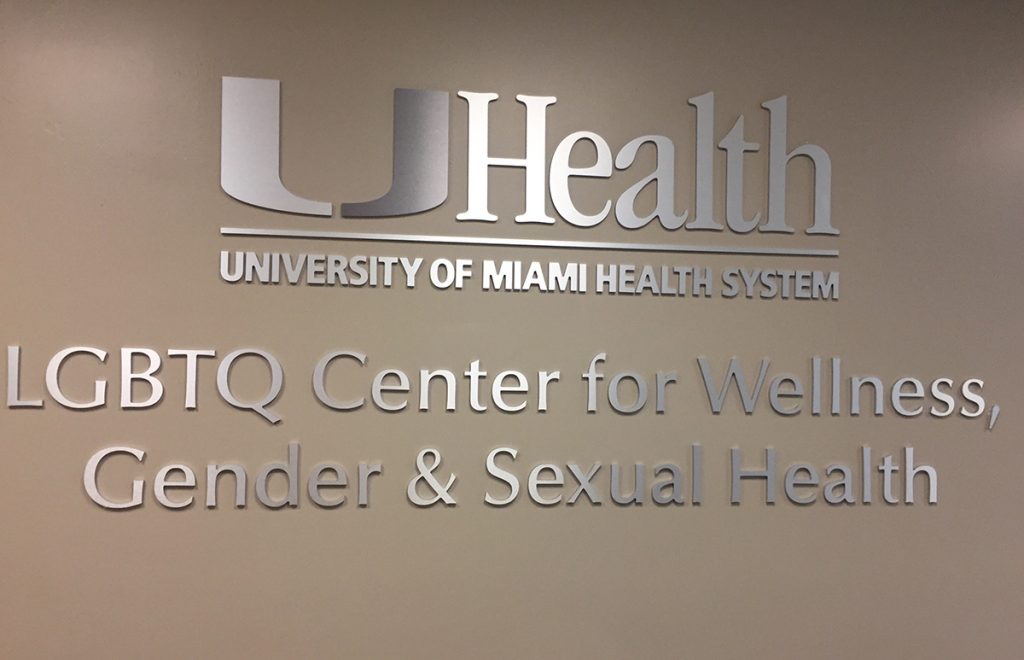In January 2017, the University of Miami Health System opened the LGBTQ Center for Wellness, Gender and Sexual Health at the University of Miami Hospital (UMH) in downtown Miami.
The clinic primarily focuses on sex reassignment surgeries for transgender individuals. A team of six doctors, including colon and rectal specialists, urologists, oncologists, mental health providers and a voice coach, accompanies patients from the beginning of their journey to the end.
“The most important thing about these services that we offer is we have a multi-discipline routine of medical professionals,” said Lauren Foster, director of LGBTQ Concierge Services. “Whereas a lot of clinics like this have just one doctor, we have many.”
Foster, a popular Miami Beach trans model and activist known for being one of the first transgender women to appear on the cover of Vogue magazine and starring in two seasons of “The Real Housewives of Miami,” joined the UM LGBTQ center in January to give her experience and knowledge back to the community.
Dr. Christopher Salgado, the chief surgeon at the LGBTQ center, offered this opportunity to Foster. He told her that the clinic was expanding and that it would be “wonderful” to have her work with the clinic because she is famous and the students would “feel good” about having another transgender person help them on their journey.
Foster said that having the center in the hospital is a great advantage because, if anything were to go wrong, the center would have all the necessary facilities. This is especially valuable for transgender operations that last many hours and require extreme precision.
Male-to-female surgery usually lasts six to eight hours, while female-to-male surgery is much longer due to its relative difficulty, Foster said. Female-to-male patients have an upper-body surgery first, creating a masculine chest. Then they have four lower-body surgeries, creating male genitals. All of the operations can take up to a year to complete.
However, before a transgender individuals can start the process of sex reassignment surgery, they are required by state healthcare regulations to live as the gender they identify as and see two licensed mental health providers for at least one year. The therapists must be experienced with gender dysphoria patients. After the yearlong period, patients need two letters of recommendation from the therapists for the surgery. Patients must also be at least 18 years old but can get chest procedures done earlier with parental consent.
The center has 13 operation rooms in total. They are located on the second floor of the hospital and include a variety of modern facilities, such as an X-ray room with equipment to scan a patient’s face for a facial feminization procedure, which occurs later in the process.
“We have consultations on Wednesdays, and we see up to 20 patients a day,” Foster said.
“I think it’s so progressive and so wonderful that UM is creating this,” she said. “It should be commended that the university would have something like this because it’s very much needed in the community.”
The LGBTQ center is located at the UM hospital, 1400 NW 12 Ave. It accepts all indemnity insurance products, CHAMPUS, Workers Compensation, Medicare and Medicaid. To set up an appointment, individuals can contact the center via phone at 305-243-4500 or email at miamitransgender@med.miami.edu.







